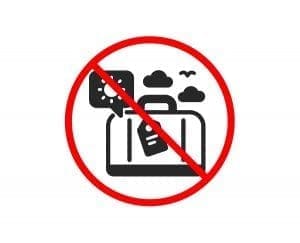
Concerns relating to the spread of the COVID-19 and large-scale travel restrictions put in place are having a direct impact on hoteliers across the Asia-Pacific (APAC) region. While the full picture of reduced demand for hotel rooms across the region is only beginning to be understood, STR Global has indicated that “Singapore, Bangkok and Bali, all popular markets for outbound Chinese travelers, have seen the decline continue in occupancy from their normal respective levels.” In particular, the tourist destination of Phuket is forecasting challenging operating conditions with hotels’ on the books occupancies for March in the 40-50% range, versus last year where 70-80% was on the books for the same period.
Markets that source a large portion of their guests from mainland China, and other affected regions like Korea, are being most affected by the current travel restrictions. However, as no one can accurately predict the extent to which the virus will spread, hoteliers across the wider APAC region are understandably concerned. So, what should hoteliers consider when seeking to address the business challenges posed by the emergence of COVID-19?
Firstly, hoteliers must avoid making ‘gut-instinct’ or emotional decisions in the face of current market uncertainty. Rather they should focus on rational, analytical and data-based strategic approaches to pricing. For example, when faced with a high volume of cancellations or low demand from countries affected by COVID-19 hotels might be tempted to offer short-term discounts and to start relying on more expensive distribution channels to try and attract bookings from other markets. While this might seem like a good strategy for the short term, it is a very long road to recovery from these decisions.
A key lesson learnt from previous instances of market uncertainty—such as the global financial crisis—is that although price cuts may deliver a brief spike in volume in the short run for a hotel, they can also result in long-term pain for any hotel that pursues this strategy. Hotels that instigate aggressive downward price action in the face of market uncertainty tend to face challenges when demand picks up. These properties experience resistance to any price increases from customers who have a lower reference point value for a hotel’s rooms and services. Additionally, if competing properties also reduce prices as a reaction to your own discounting efforts, these rival properties may not follow your attempted price increase in the future, making it difficult for you to return your prices to previous levels for some time to come.
Hoteliers should not panic when faced with market uncertainty resulting from lower demand due to COVID-19. Slowdowns happen in all regions and business (nearly) always comes back. Do not implement anything you might regret later—such as giving too much business to costly third-party booking channels. Rather, take a long-term view of what is best for your business.
It is not only tourist destinations popular with Chinese travelers and hotel room revenues that are being impacted by COVID-19. The viability of major conferences and events are also being affected due to travel restrictions. Already the HSBC Singapore Rugby Sevens has been postponed from April to October over COVID–19 fears, and many corporate conferences with potentially lucrative event-space reservations may be similarly at risk of disruption.
Any hotelier who currently is, or may in the future, be impacted by lower demand due to COVID-19 related travel restrictions needs to have a plan, even if it will not be fully implemented. As hoteliers deal with increased demand uncertainty, it is critical they map out and stress test best-to-worst case scenarios and the activities to counter each. Activities should be multi-functional and cover varying “what-if” scenarios. For example, what if corporate demand drops by 10 percent? What if group bookings fail to materialise? What if weekend demand declines by 25 percent? Hoteliers need to explore how their marketing teams could redeploy and reassign planned campaign funds to generate and secure alternative business and new markets.
Revenue managers are instrumental in finding alternative revenue sources and helping create new ones in times of uncertainty. If weekday demand declines significantly due to lower destination visitation numbers as a result of lower traveler numbers from China, revenue managers should work with their sales and distribution teams to explore alternative revenues to make up some of the lost demand (e.g., locally sourced business, meetings & events, etc.). How much revenue can a hotel protect by locking in contracts for longer periods of time? Hoteliers should also look at if their post booking pre/at arrival upsell activities are optimised and always take a long-term view with any decision-making.
The best way to prepare for future uncertainty is by being certain about your own business strategies under any condition. Hotels looking to implement new promotions should look to simulate what-if analysis and run A/B testing on potential pricing scenarios, so they aren’t blindly launching new campaigns at critical times for their business.
Hoteliers must continue to execute a revenue management strategy focused on not just the next few months, but the next several years. The overall trend for the hotel industry is and will remain positive, tied to predicted sustained growth for business and leisure travel at a global scale. The bottom line for hotels operating across the APAC region is that this is no time to panic, but it is time to plan.






























